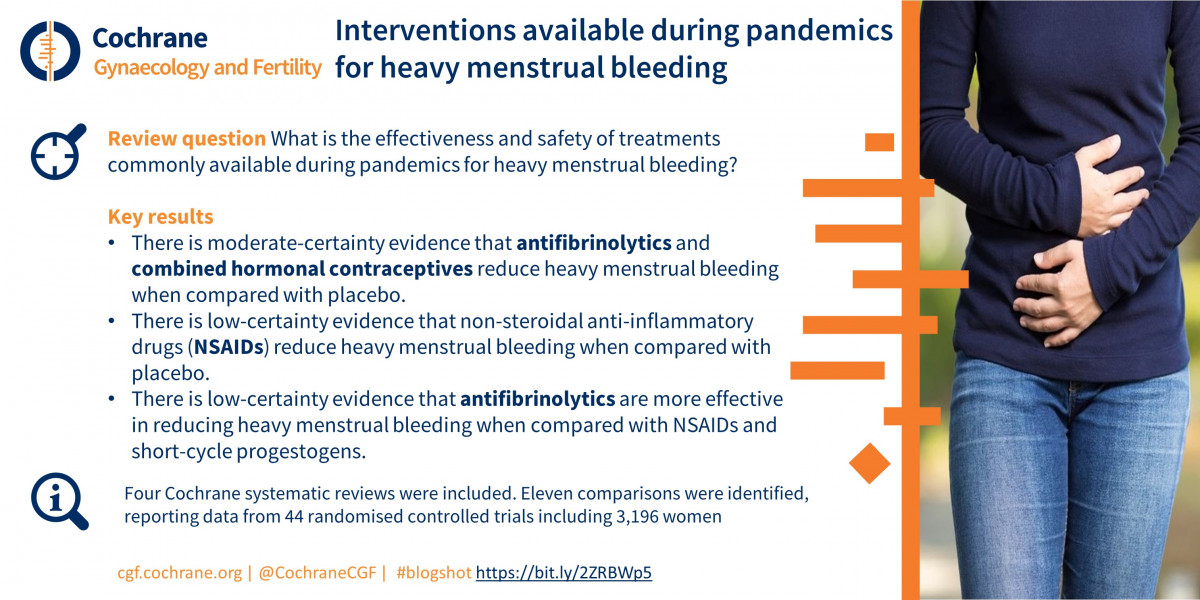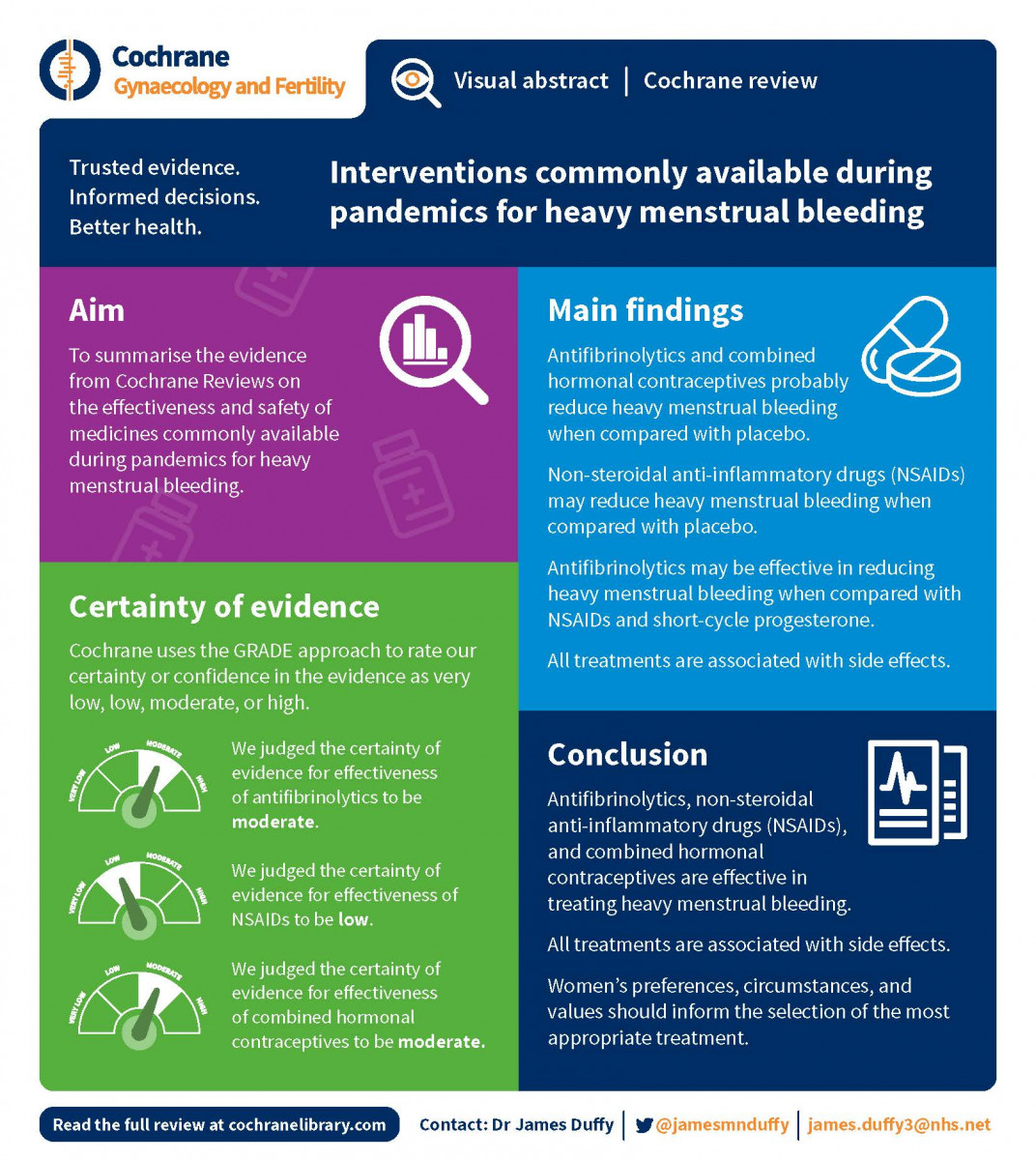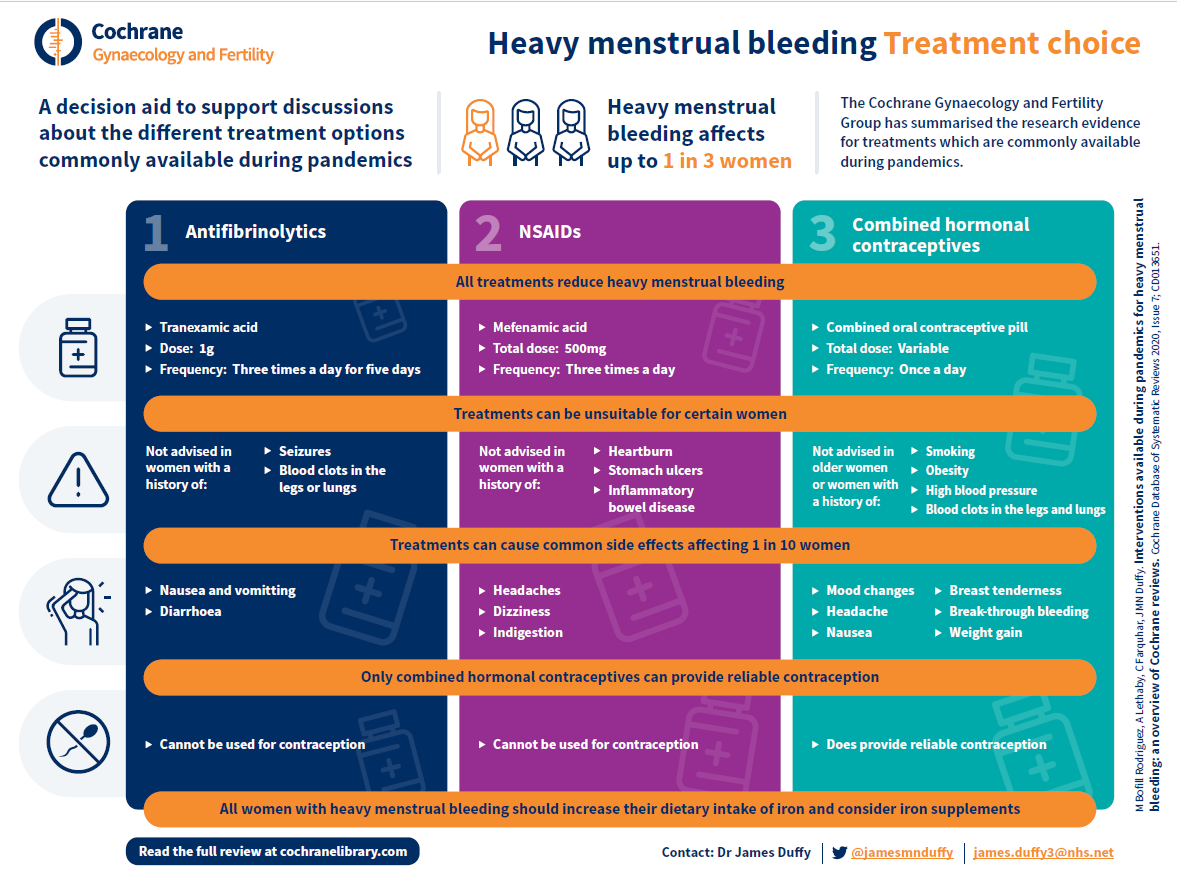
Cochrane authors summarised the available evidence on the effectiveness and safety of treatments for heavy menstrual bleeding which can continue during pandemics.
Pandemics impact upon the ability to deliver specialist assessment and treatments. Examples of treatments that commonly continue during pandemics include non-steroidal anti-inflammatory drugs (NSAIDs), antifibrinolytics, combined hormonal contraceptives, and progestogen.
Key findings
There is low-certainty evidence that NSAIDs (mefenamic acid) reduce heavy menstrual bleeding when compared with placebo.
There is moderate-certainty evidence that antifibrinolytics (tranexamic acid) and combined hormonal contraceptives reduce heavy menstrual bleeding when compared with placebo.
There is low-certainty evidence that antifibrinolytics (tranexamic acid) are more effective in reducing heavy menstrual bleeding when compared with NSAIDs and short-cycle progesterone
We were unable to draw conclusions about the effects of antifibrinolytics (tranexamic acid) when compared to long-cycle progesterone.
No conclusions can be made with regards to quality of life, women's satisfaction with treatment, or serious adverse events.
Listen to Dr. Duffy explain the findings
Dr James Duffy, Clinical Fellow, King’s Fertility, underscores the importance of the overview review, “During the COVID-19 pandemic it has become clear that the impact upon specialist assessment and treatment will continue. It is important health care professionals and women experiencing heavy menstrual bleeding have access to a Cochrane review which evaluates and summarises the evidence base for the treatments which can often continue during the pandemic.”

Decision Aid
A decision aid has been developed to support shared decision making during virtual consultations. Women with heavy menstrual bleeding helped to develop the decision aid, which draws upon the evidence summarised within the Cochrane review.

Dr Duffy adds: "Developing a decision aid alongside the Cochrane overview presents a unique opportunity to bring together the best research evidence alongside a women’s preferences, circumstances, and values. We anticipate the decision aid will support shared decision making. It is important women experiencing heavy menstrual bleeding are able to understand the range of possible treatments available, their risks and benefits, and be afforded the opportunity to consider these decisions within their own context and circumstances."



